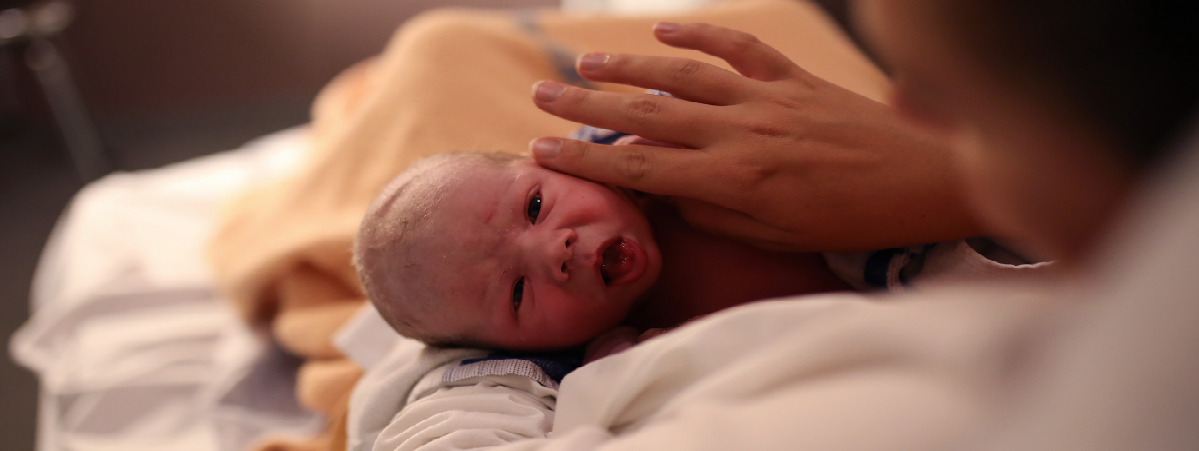Blood groups in pregnant people and babies
The blood group of the foetus is inherited and determined by the biological parents’ blood groups. But it isn’t as simple as the baby inheriting them directly – blood groups are complex and sometimes, the baby won’t have the same type as their parents. And that can be problematic if the pregnant person is Rh-negative.
The blood groups are divided into types A, B and O, and if you know what your and your partner’s blood groups are, then you can figure out what type your baby will have. Genetically, it’s quite straightforward which of the different blood groups will break through: A and B are dominant genes, while O is recessive, which means it has a smaller chance of breaking through.
How is blood group inherited?
The easiest way to determine what blood group your baby will have is by looking at the table of blood groups and heredity:
| Parents’ blood group | Baby has blood group |
| 0 and 0 | 0 |
| 0 and A | A or 0 |
| 0 and B | B or 0 |
| 0 and AB | A or B |
| A and A | A or 0 |
| A and B | A, B, 0 or AB |
| A and AB | A,B or AB |
| B and B | B or 0 |
| B and AB | A, B or AB |
| B and AB | A, B or AB |
| AB and AB | A, B or AB |
In addition to types A, B and O, another important and relevant parameter is Rhesus factor.
Different blood groups and Rh factor
In addition to being A, B or O, blood groups can also have or lack Rhesus factor , with Rh-positive being most common. If your blood lacks Rhesus factor, you are classified as Rh-negative. Your doctor or midwife will take a blood test to determine your blood group in order to be prepared for, and in all likelihood, prevent any problems.
If the baby inherits Rhesus factor from the other parent, the midwife will carefully monitor to make sure your blood does not mix with the baby’s while baby is in your belly. In rare cases, Rh-positive blood can leak from the foetus to the pregnant person, which causes the Rh-negative blood to start forming antibodies – something called immunisation.
Immunisation and treatment
Immunisation does not affect the pregnant person so there are no symptoms to watch for. However, the foetus could become anaemic. Treatment will vary depending on where you live, but there are drugs to take for immunisation. If your bloodstream mixes with the baby’s, then your antibody levels and the baby’s well-being will be carefully monitored for the rest of the pregnancy, potentially at a different, specialist clinic.
Childbirth with different blood types
In the unlikely event of developing antibodies, labour is induced around week 38. Once the baby is here, a PKU test and the other ordinary exams are done. The baby might need phototherapy to reduce the risk of jaundice, which is more common with a mixture of different blood types. In rare cases, the baby may need a blood transfusion.
And if you don’t have antibodies, childbirth will proceed as normal.
Please note that all information above is based on Swedish recommendations.



